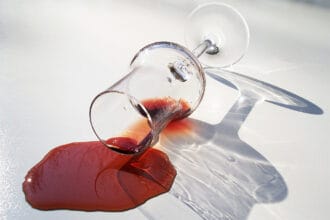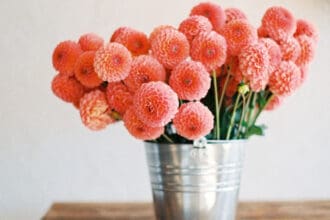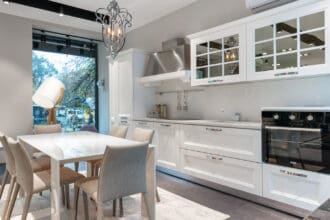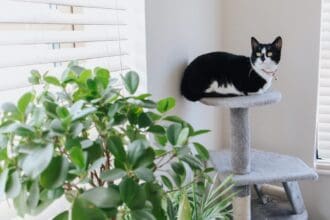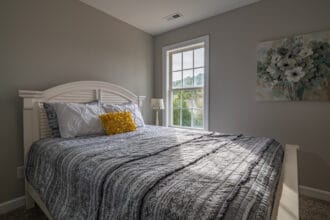
via: Unsplash / Stephanie Harvey
In this post, we will discover the different types of light bulbs. It's good to know there are different bulb types to choose from.
That is why I am here to guide you if you are looking for the right types of lights for your home. DIY and home improvement are my favorite things, with some of my articles published on popular home improvement websites such as The Spruce and My Maid.
Let's get started and learn about different bulbs for your lighting needs.
Contents
5 Different Types of Light Bulbs You Need To Know
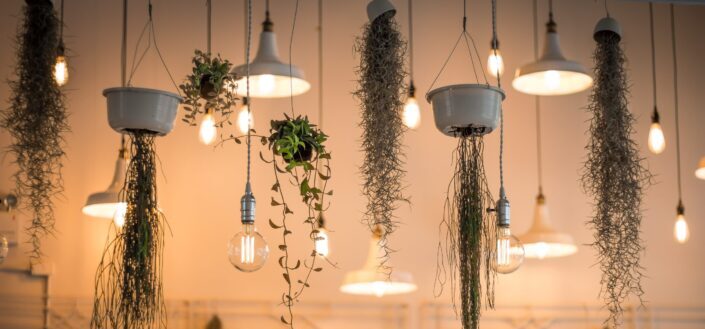
via: Unsplash / Patrick Schneider
There are different types of light bulbs you can choose from. The last thing you want to happen is to buy the wrong bulbs for your home lighting needs and waste your time and money.
1. Incandescent
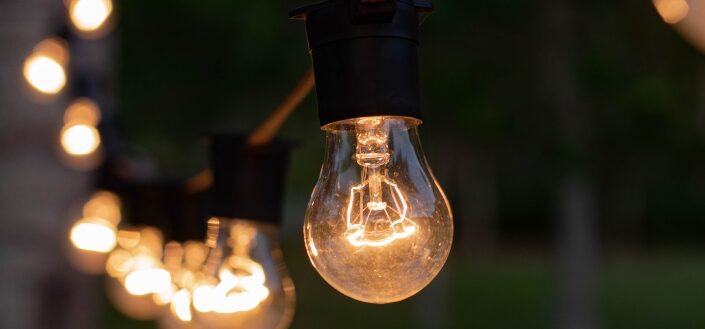
via: Pexels / MMFILMS
It was once the industry standard, but most are already phased out except specialty incandescent light bulbs such as chandelier bulbs. It usually lasts a year on average, doesn't contain mercury, and is often used with a dimmer switch.
2. Fluorescent/CFL
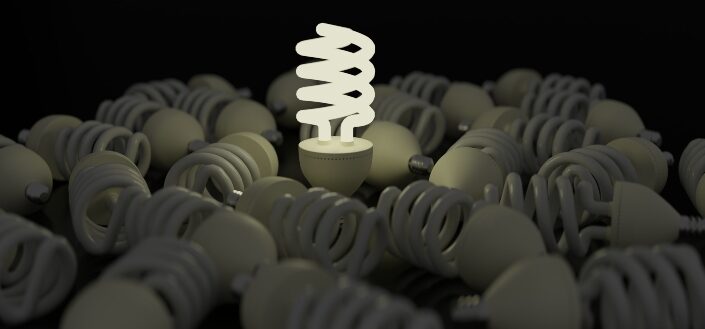
via: Unsplash / MJH Shikder
A CFL light bulb often comes in a long tube or U-shaped form and won't work without a ballast. Unlike an incandescent light bulb, a fluorescent light/CFL bulb uses less energy, produces less heat, and is ideal for hallways, offices, kitchens, and other large spaces.
3. Halogen
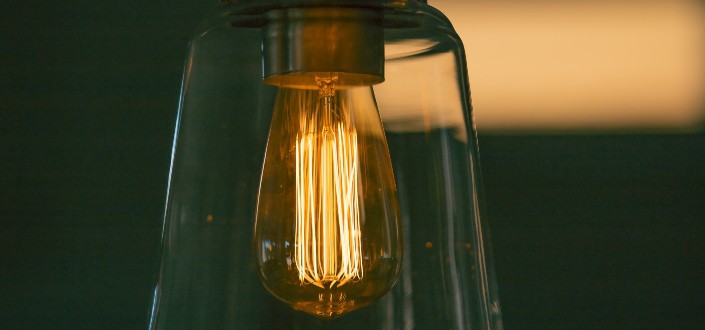
via: Unsplash / Caleb Woods
A halogen bulb is similar to a traditional incandescent bulb, but with less energy consumption. Halogen bulbs last a year on average and don't contain mercury as well.
4. High-Intensity Discharge (HID)
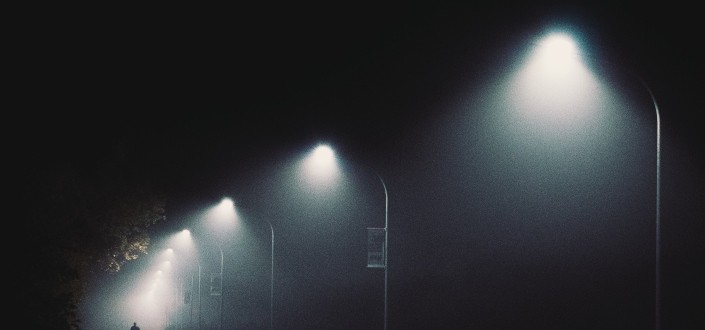
via: Pexels / Alex Fu
HID bulbs are often used in warehouses, streetlights, commercial buildings, and other large spaces. It also contains mercury vapor or sodium and doesn't contain filaments.
5. LED
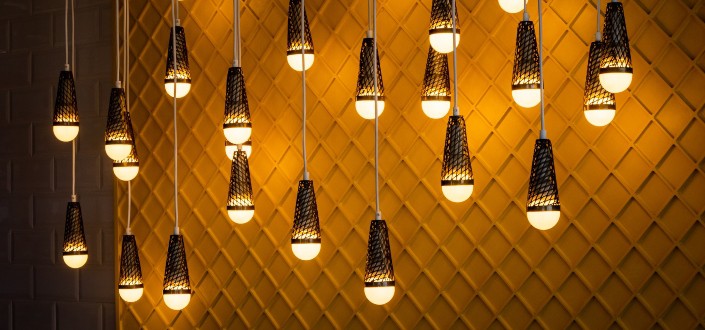
via: Unsplash / Grant Durr
Unlike incandescent light, LED lights produce up to 90% light without heat, short for a light-emitting diode. LED lighting is often marketed as an eco-friendly lighting option.

via: TheGolden
Share This Image On Your Site
5 Factors To Consider When Choosing the Right Bulb For Your Home
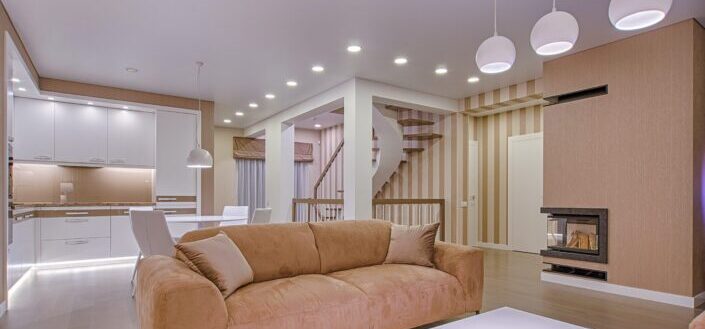
via: Pexels / Vecislavas Popa
Choosing the right light bulb type for your home can be overwhelming. Instead of buying a light fixture that looks nice in your room, it also helps determine the right bulb that fits your fixture best.
Consideration #1: Brightness (in lumens)

via: Unsplash / Danny Lines
Lumens measure the light bulb's brightness. The higher the lumens, the brighter the light the bulb gives. For example, a 100-watt light bulb produces around 1600 lumens. The bulb brightness depends on where you are going to install the lighting fixture.
Consideration #2: Light appearance (warm white or yellow vs. cool blue ranges)
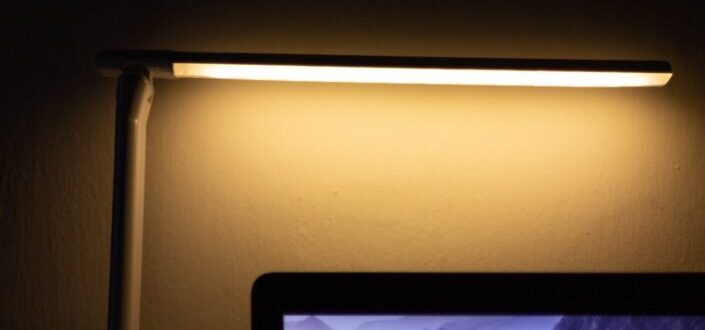
via: Unsplash / Matus Hatrak
Also known as color temperature, light bulbs usually give yellowish, white, or bluish tinges. Bulbs with yellowish light sources produce "warm" light best for living rooms, bedrooms, and kitchens. White light is brighter and recommended for entryways and bathrooms. Lastly, bluish-white light has a "cooler" and is great for security and task lighting.
Consideration #3: Energy used (in watts)
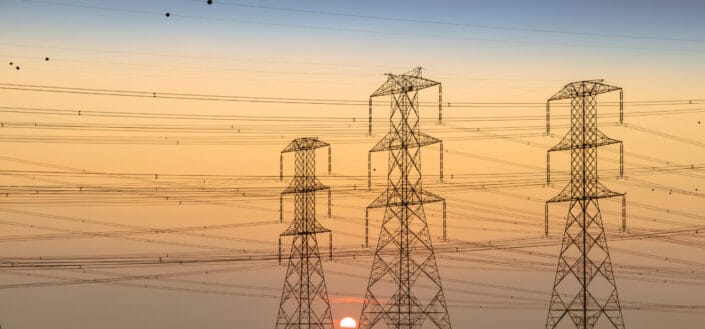
via: Pexels / Tayssir Kadamany
The unit of measure for the amount of energy used to light a bulb is called watts. Incandescent lights are still being used these days. However, more households and organizations have become more environmental-conscious and prefer to use energy-efficient bulbs instead.
Consideration #4: Estimated annual energy cost (depends on rates and usage)

via: Unsplash / Giorgio Tomassetti
Energy-efficient bulbs are now available in the market. It lasts longer than traditional incandescent lights and helps lessen your home's carbon footprint. Using energy-efficient light bulbs can be left on for long hours but can still last for many years without replacement.
Consideration #5: Type of Lightning Needed
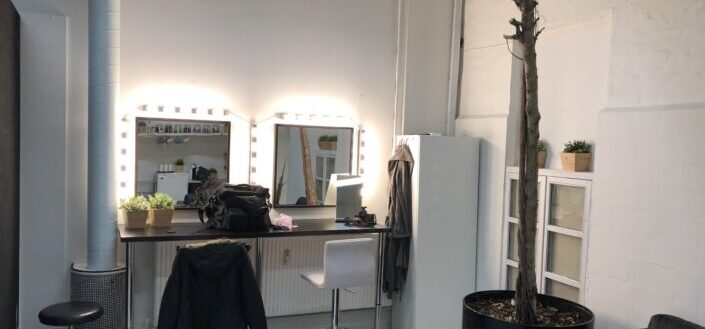
via: Pexels / Rene Asmussen
There's also ambient, task lighting, and accent lighting. Ambient lighting offers overall lighting for rooms. Chandeliers and ceiling fans often use ambient lighting. Task lighting is needed to provide direct light for specific tasks.
Vanity tables and desk lamps use task lighting. Lastly, accent lighting highlights useful features in your home, such as your wall gallery. Wall sconces and track lighting are some examples of accent light fixtures.
Frequently Asked Questions
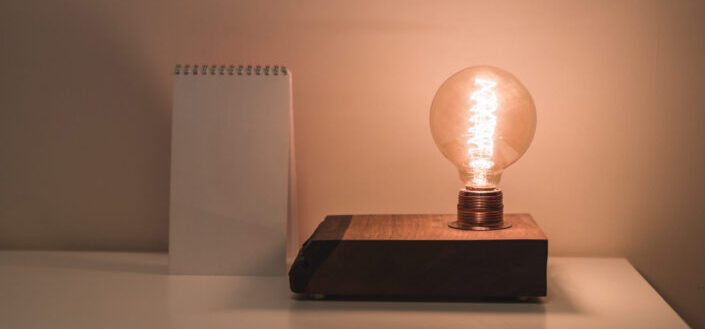
via: Pexels / Burak Kebaber
You already have an idea about the different light bulb types to choose from according to your lighting needs. However, there might still be questions in mind that need answers. Below are some of the most commonly-asked questions about light bulbs and the important answers that will put your mind at peace.
What happens if I use the wrong bulb?
According to experts, using a light bulb with excessive wattage could cause overheating. It can melt the wire insulation and light sockets, which could cause fire accidents.
How do you know if the light bulb is compatible?
First, you have to choose a light bulb with a watt amount less than or equal to the maximum wattage on your lighting fixture. Never put a high-wattage bulb in a low-watt fixture, as it can cause accidental fires. Choosing the right light bulb shape and size is a matter of preference, but some bulbs only fit on specific fixtures, so you should take note of that as well.
Which color of light bulb is best for sleep?
There are many relaxing bedroom ideas for a good sleep. This also includes choosing the right color of visible light to help you sleep. Interior design experts recommend using warm light in your bedroom, preferably those with red or yellow tinges. Never use blue light in your bedroom as it can disrupt melatonin production, which could affect your sleep.
Which light is good for your eyes?
Warm light is best for the eyes, produced by LED and incandescent lamps, and comes from natural light. Yellow light is effective in protecting the retinas from UV and excessive blue light.
More Interesting Articles To Explore
Choosing the right light bulb will make a difference in achieving a comfortable and pleasant home life. These related articles can also help in maintaining your home in general.
- Perfect the look of your garden by using the best weed wacker around. A must-have for all households for a good-looking lawn and yard all year round.
- Choose the best mechanic tool sets for repair jobs, whether at work or at home.
- Finding the best lawn mowers is not as easy as you think. Learn more when you read this post.
Conclusion
These are important things you need to know about different types of light bulbs. Choosing the right light bulb for your home lighting needs could be overwhelming. By being familiar with light bulbs, you won't risk buying the wrong bulb anymore and getting the most out of the best light bulbs out there.












